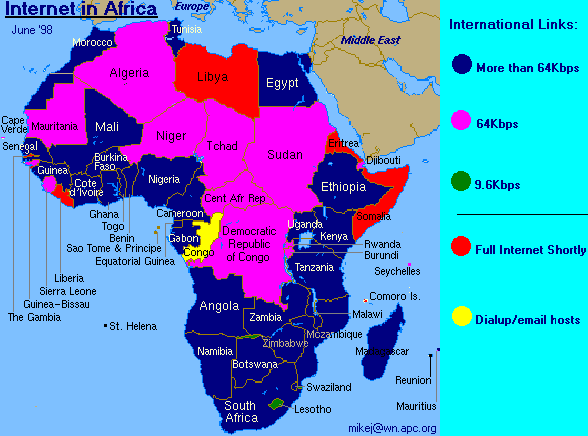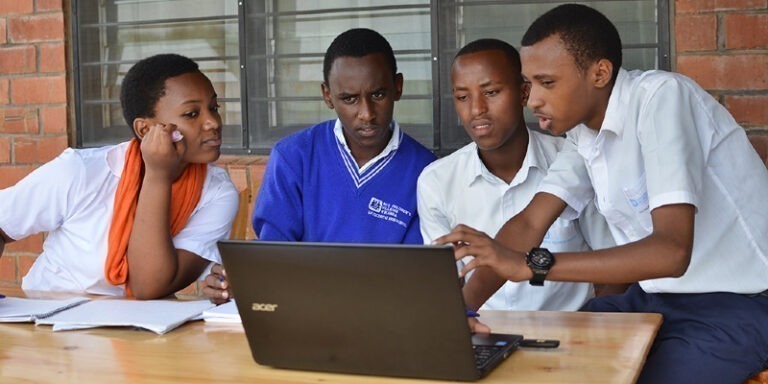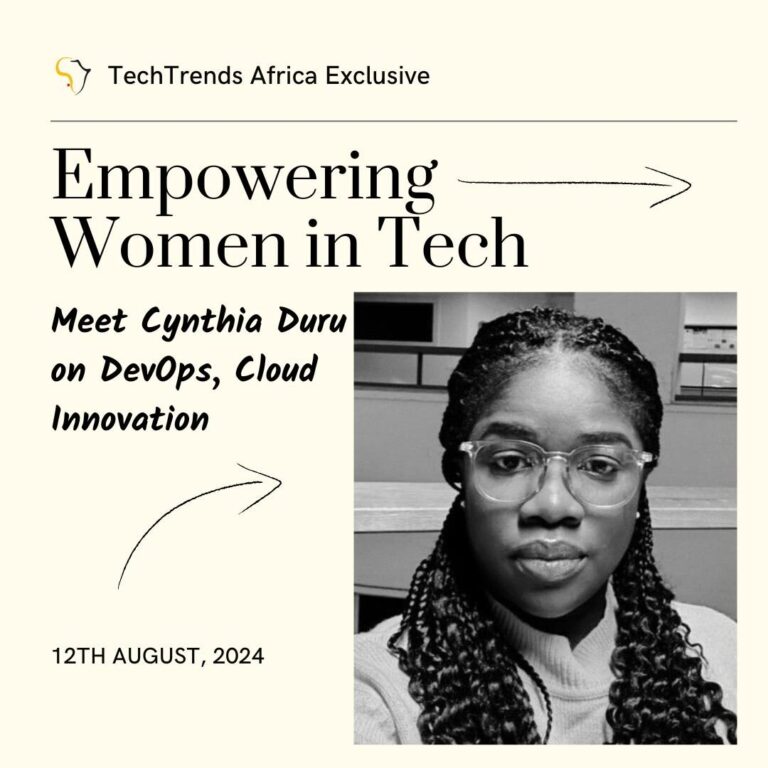In 2021, African technology took center stage

Two years ago, the African tech ecosystem received renewed attention from global players, resulting in the continent’s best year in terms of venture capital. According to various sources, up to $2 billion was invested in African tech startups in 2019.
It was a sign of things to come for African tech, with high-profile visits from the most famous Jacks (Ma and Dorsey), a long-awaited first IPO by e-commerce giant Jumia, and massive $100 million rounds.
However, two months into 2020, the pandemic has done an excellent job of dampening expectations as investment activity from both domestic and international investors has slowed.
But it wasn’t a bad year. African startups raised nearly $1.5 billion and had a couple of interesting exits: Stripe-Paystack and WorldRemit-Sendwave
As we approach 2021, the optimism of African tech stakeholders has returned — and why not? As businesses reopened around the world and the pandemic compelled people to adopt new habits in e-commerce, work, spending money, online delivery, and learning, venture capital into various industries was set to skyrocket, and Africa was not immune.
Predictions on how much money the continent’s startups would raise in December were made. AfricArena, a tech ecosystem accelerator, estimates that deals will be worth between $2.25 billion and $2.8 billion. Stephen Deng, co-founder and partner at DFS Lab, a firm that invests in digital commerce startups, compared the Southeast Asia funding landscape in 2016 to where Africa could be in 2021, at $3 billion.
These forecasts weren’t completely off the mark. In the end, data from the likes of Maxime Bayen and Briter Bridges made 2019 figures look child’s play. In 2021, African technology reached a tipping point and took center stage, with companies raising more than $4 billion (more than they got in 2019 and 2020 combined).
We highlight some of the events that shaped this pivotal moment in African tech, from the creation of five unicorns to the increase in million-dollar raises for female CEOs.
What’s a record-breaking funding year without a few unicorns?
Attaining unicorn status — a privately held company with a $1 billion valuation — is undeniably one of the most vain achievements for any startup, but it remains the most coveted.
The first two unicorns in Africa were Jumia (in 2016) and the fintech behemoth Interswitch (in 2019). When Jumia went public on the NYSE in 2019, it no longer qualified as a unicorn and instead became a typical billion-dollar publicly traded company.
Fawry, an Egyptian payment company, is in a similar situation. In 2019, it went public on the Egyptian stock exchange (the first indigenous tech company to do so on African soil). Unlike Jumia, however, Fawry did not reach a billion-dollar valuation until a year after going public. So it isn’t, and it never was, a unicorn.
Interswitch was the only unicorn on the continent until five more were minted this year. Flutterwave, OPay, Wave, and Chipper Cash are four fintechs, while Andela is a tech talent marketplace.
Flutterwave received its horn in March at a valuation of $1 billion; OPay in August at a valuation of $2 billion; Wave and Andela the following month, at $1.7 billion and $1.5 billion, respectively; Andela in September at a valuation of $1.5 billion; and Chipper Cash in November at a valuation of $2 billion. Meanwhile, Interswitch is the only unicorn worth $1 billion between 2019 and 2021.
This sudden increase in unicorn numbers on the continent can be attributed to a number of factors. There are more experienced founders, and specific markets, particularly in the Big Four (Nigeria, South Africa, Egypt, and Kenya), exhibit a mix of matured but still open-to-disruption characteristics.
From the pre-seed to the Series E stages, international investors were present.
While global investors had previously invested in African startups, their activity appeared to be more prominent in 2021, most likely due to their increased participation across the board.
Investors like Berlin-based VC firm Target Global and renowned investment firm and hedge fund Tiger Global, for example, cut checks at the early and growth stages.
Target invested in both Kuda and Mono’s Series A rounds (including the Series B round of the former). Kippa and Edukoya’s pre-seed rounds were also led by the European VC. Tiger, on the other hand, led the seed round of Union54, Mono’s Series A, and later rounds of FairMoney and Flutterwave.
Sequoia in Telda’s pre-seed; Wave’s Series A, via stealthy wealth management fund Sequoia Heritage; and OPay’s Series C, via its subsidiary fund Sequoia Capital China, were among the other deals in which growth firms participated in the early and growth stages.
Other investors, including Dragoneer, FTX, Fidelity, SVB Capital, and Sam Altman, also participated in single large deals for the first time. It was routine for other firms like Tencent, which invested in the growth rounds of uLesson, Ozow, and TymeBank– and SoftBank, which led two of the continent’s many nine-figure rounds in 2021: unicorns Andela and OPay via its Vision Fund 2.
This year, African startups raised more $100 million+ rounds than ever before.
After raising a $120 million Series B round, OPay had one of three nine-figure deals in 2019. Andela’s $100 million and Interswitch’s $200 million deals were among the others. Imagine the surprise the following year when no nine-figure transaction occurred (just as the continent failed to produce a unicorn).
The dry spell didn’t last long, as Africa not only had its most unicorn year, but also the most nine-figure rounds (11 from 10 startups) in a single year.
Let’s begin with unicorns: Flutterwave raised $170 million in Series C funding; OPay raised $400 million in Series C funding; and Wave and Andela each received $200 million. Then Chipper Cash did the double: a $100 million Series C round, followed by a $150 million extension of its unicorn round months later.
TymeBank’s $180 million Series B, Jumo and MNT-$120 Halan’s million rounds, TradeDepot’s $110 million, and MFS Africa’s $100 million are among the others.
Andela and TradeDepot were the only non-fintech deals (although the latter has an embedded finance play). Furthermore, all but two transactions were entirely equity-based: TradeDepot and MFS Africa raised a combination of equity and debt.
A few local acquisitions and a massive exit
Gateway for digital payments MFS Africa is one of the few corporate investors and acquirers in Africa. Over the last five years, the company has made strategic investments in Africa’s underserved startup regions, including Julaya, Maviance, and Numida. In terms of acquisitions, Beyonic and, most recently, Baxi stand out.
The trend of local companies buying each other played out last year and will continue into 2021. TLcom-backed Kenyan consumer experience platform Ajua purchased WayaWaya; Nigerian bus booking and Techstars-backed Treepz expanded into Ghana and Uganda after acquiring Stabus and Ugabus; and Flutterwave entered the creator economy with the Disha acquisition.
Others include Jiji’s purchase of Cars45, Egypt’s B2B e-commerce platform MaxAB’s purchase of YC-backed Waystocap, which allows it to expand into Morocco, and Cheki’s sale of its businesses in Kenya and Uganda to Nigeria’s Autochek.
The other acquisitions listed were undisclosed, similar to the MFS Africa-Baxi deal, which both parties claimed was the second-largest fintech acquisition in Africa after Stripe-Paystack.
Another day, we’ll talk about why African startups don’t reveal their acquisition price. Reporting such deals may not be appealing in the future (if they remain undisclosed) unless they involve international expansion plays, in my opinion. Consider Nigerian healthtech Helium Health’s acquisition of Meddy in the UAE (the first of its kind between Sub-Saharan Africa and the GCC) and Australian BNPL player Zip’s acquisition of PayFlex in South Africa.
And when a price tag is attached to international expansion, it becomes more exciting; for example, data center Equinix announced that it would acquire Nigeria’s MainOne for $320 million. The announcement was the highlight of this year’s acquisition deals, not only because of its size, but also because MainOne is led by a woman, Funke Opeke, as CEO.
More female-led startups have raised million-dollar rounds of funding.
Funke Opeke is one of the few founders who has managed to take an African tech company all the way to the finish line. She is also likely the only female founder on the continent to have raised nine figures for her company.
Opeke’s experience is unusual. Funding for female-led businesses is difficult to come by in Africa and around the world. Briter Bridges published a report in the middle of this year that looked at 1,100+ companies that received venture capital funding between 2013 and May 2021 (priced at $20 million or less).
According to the report, only 3% of the $1.7 billion raised during this time period went to all-female founding teams, compared to 76% for all-male teams.
So it’s fantastic news when female-led startups in Africa raise a million dollars or more. And it indirectly contributes to how well the region performs, as evidenced by more than ten deals this year, indicating an improvement in VCs (both gender-focused and gender-agnostic) sourcing for female-led teams to invest in.
The female-led startups that raised a million dollars or more this year include Shuttlers, Bankly, Lami, Okra, Klasha, Akiba Digital, Ejara, Kwara, Edukoya, Reelfruit and Jetstream.
Local investors — as well as founders — have upped their game.
Alitheia IDF is a Reelfruit and Jetstream investor. The women-focused firm has a $100 million private equity fund for gender-diverse businesses in Africa, led by principal partners Tokunboh Ishmael and Polo Leteka.
It is also one of the local funds that raised large sums of money this year to write checks to African startups at various stages. Ventures Platform, LoftyInc Capital, Voltron Capital, and 4DX Ventures are some of the other sub-Saharan-based VC firms with a pan-African strategy.
Up north, investors such as Sawari Ventures and Algebra Ventures stepped up to support startups, particularly in Egypt, where startup innovation and investment have skyrocketed.
Local and Africa-focused investors also funded the entire seed to Series A rounds of some Sub-Saharan African companies (Appzone, Payhippo, to name a few), which was unusual in previous years. Future Africa, Kepple Africa, Launch Africa, and others kept up the pace they set in 2020, writing many new and follow-up checks this year.
We also noticed that active founders such as Flutterwave CEO Olugbenga’ GB’ Agboola, Paystack founders Shola Akinlade and Ezra Olubi, and Chipper Cash founders Ham Serunjogi and Maijid Moujaled participated in early-stage rounds.
Nigeria has become the unicorn capital, and Egypt has become a powerhouse
Interswitch, OPay, and PalmPay raised a total of $360 million from American and Chinese investors in November 2019. As a result, Nigeria has been designated as Africa’s unofficial capital for fintech investment and digital finance startups.
Nigeria has the greatest fintech opportunity on the continent. With over 40% of Nigerian adults having bank accounts and digital payments exceeding $250 billion in 2019, it’s no surprise that startups that facilitate transactions for the unbanked (OPay) and provide gateways (Interswitch and Flutterwave) are now worth more than $1 billion.
The three companies, including Andela, began operations in Nigeria’s commercial capital of Lagos, establishing Nigeria as Africa’s unicorn capital in 2021.
For a long time, Nigeria, along with Kenya and South Africa, has been one of the three countries that receive the majority of local and international venture capital. The three countries represent Africa’s most connected populace and fastest-growing economy, creating the ideal environment for attracting foreign capital ahead of others.
But then Egypt entered the picture in 2017, and over time, the North African country became one of the “Big Four” as it began attracting venture capitalists’ attention. And, after lagging behind for a few years, Egypt made a strong comeback in 2020, passing Kenya to become the region’s third most active investment region.
According to the report, “seemingly out of nowhere, Egypt has emerged as a key African startup funding destination, highlighting the prospects for continental growth of the nascent sector.”
Egypt also holds the distinction of having produced the continent’s first SPAC transaction. Swvl, a ridesharing company based in Cairo and Dubai, announced in July that it was going public through a merger with Queen’s Gambit Growth Capital. Swvl, one of the country’s success stories, will be valued at nearly $1.5 billion once the transaction is completed.
The North African country raised nearly $600 million this year, owing to its large population and impressive GDP per capita. While it is less than what Nigeria and South Africa raised, which totaled more than $1.4 billion and $830 million, respectively, some observers believe Egypt will surpass South Africa by next year if it maintains its current pace.
There are a few reasons for this way of thinking. Fintech is the sector that receives the most funding in Nigeria, South Africa, and Kenya. Egypt’s main industries are e-commerce and retail, but the country is also a hotbed for fintech, as evidenced by the highest pre-seed rounds in both categories (Rabbit’s $11 million and Telda’s $5 million rounds).
When I wrote this piece earlier this year, Autochek had raised $3.4 million in a pre-seed round. Rabbit’s eight-figure pre-seed cost three times as much. According to sources, another Egyptian startup will close a pre-seed round of that size next year.
Amazing pre-seed investments like these are just one of many indicators of how quickly venture capital has grown in Africa. This year, the continent’s startups raised more than $4 billion and produced five unicorns. Nobody knows what to expect in 2022, but there is a cautious optimism that we will see “more of everything,” including some IPOs (I may be exaggerating here), so brace yourselves.







